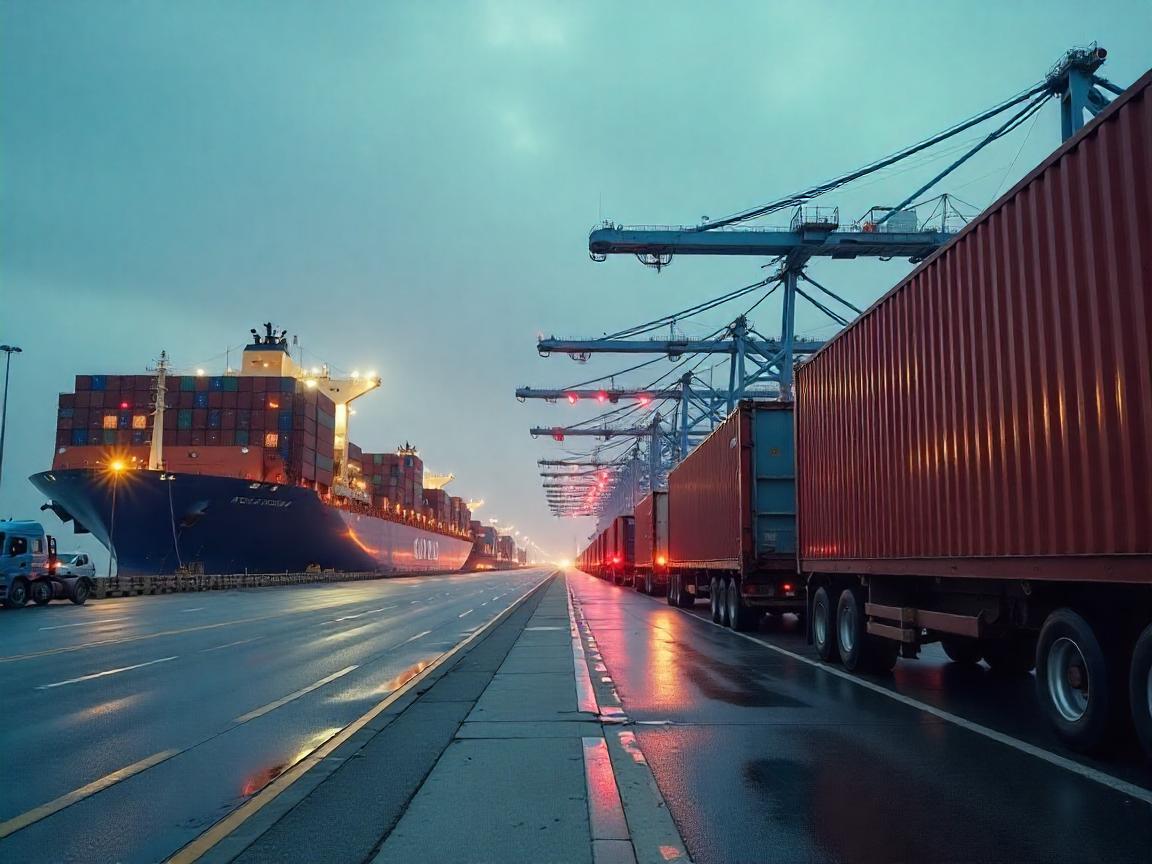Introdução
A paisagem do transporte de carga entre a China e os Estados Unidos tem mostrado sinais de declínio significativo, levantando questões sobre as implicações para a logística. Compreender essa tendência é crucial para empresas e prestadores de serviços de logística, pois ela altera a dinâmica do transporte global.Current Market Conditions
Expeditors International, uma empresa líder em transporte de cargas, apontou que a situação está se tornando cada vez mais precária devido às negociações tarifárias em andamento. A empresa menciona que a demanda de transporte está diminuindo à medida que tarifas não resolvidas criam um ambiente imprevisível para embarcadores.O CEO da Expeditors, Daniel R. Wall, expressou incerteza, declarando: “É como tentar acertar um alvo em movimento com todas as mudanças rápidas nas regras e regulamentos que afetam nossa indústria.” Essa incerteza contínua não apenas influencia as taxas de frete, mas também leva as empresas a reconsiderarem suas cadeias de suprimentos, destacando a necessidade de soluções logísticas ágeis.
Fatores que Contribuem para o Declínio
A queda nos volumes de remessa da China para os EUA tem várias raízes, sendo a principal:- Tarifas não resolvidas: Discussões tarifárias em andamento criam barreiras, levando os importadores a estocar mercadorias na expectativa de aumentos de preços.
- Deslocamentos Geopolíticos: Mudanças nas relações internacionais afetam as rotas comerciais e o fluxo de mercadorias.
- Comportamento do Consumidor Alterado: Mudanças nas demandas do mercado levam as empresas a reassessarem suas estratégias de logística.
Indicadores Antecedentes de Declínio
Embora seja cedo para medir o impacto total desses problemas, os dados indicam uma queda notável nos volumes de transporte de cargas. A Expeditors destacou que existem “sinais iniciais de que os volumes oceânicos da China para os EUA estão diminuindo significativamente”. Consequentemente, algumas empresas estão redirecionando seus envios para países menos afetados por tarifas, impactando assim os fluxos logísticos globalmente.Impacto nas Tarifas de Envio
Wall elaborou ainda: “Especulações sobre novas tarifas podem levar os clientes a pausar ou até mesmo cancelar remessas por completo”. Essa abordagem cautelosa por parte dos embarcadores pode levar a um excesso de capacidade de envio, causando uma queda nas taxas de frete. Se a demanda do consumidor enfraquecer significativamente, isso pode criar um desequilíbrio entre oferta e demanda que exerce pressão adicional sobre as taxas de envio.
Resultados Financeiros para Expeditors
Apesar de enfrentar um mercado turbulento, a Expeditors relatou recentemente um desempenho notável no primeiro trimestre do ano. Os lucros e receitas da empresa superaram as expectativas dos analistas, com um aumento notável tanto no volume de carga aérea (9%) quanto no volume de carga marítima (8%).No entanto, a volatilidade na indústria de transporte marítimo é evidente. A ação da Expeditors registrou uma queda de 3,4% este ano, refletindo as preocupações dos investidores com as tensões comerciais em andamento. Embora a empresa tenha administrado ganhos, o mercado maior indica que os fatores de risco associados à logística internacional permanecem altos.
Olhando para o futuro
As empresas de logística devem permanecer vigilantes enquanto navegam por este terreno incerto. Os importadores parecem ter adiantado os envios numa tentativa de evitar aumentos de custos antecipados com tarifas, indicando uma estratégia proactiva para mitigar riscos no ambiente atual.Ajustando-se a Novas Realidades
Os desafios colocados por tarifas flutuantes e questões geopolíticas sublinham a necessidade de flexibilidade na logística. À medida que alguns importadores mudam para rotas de envio alternativas, os prestadores de logística podem explorar rotas por regiões menos pressionadas.| Fatores Impactando o Declínio | Soluções potenciais |
|---|---|
| Tarifas Não Resolvidas | Desenvolver estratégias de preços flexíveis |
| Mudança nos Padrões de Comércio | Identificar e desenvolver novas rotas de envio |
| Demanda do Consumidor Incerta | Implementar análise preditiva para previsão de demanda |
Importância para Provedores de Logística
Para empresas de logística como a GetTransport.com, que se especializam em fornecer soluções globais de transporte de carga, entender essas tendências é essencial. Ao oferecer uma variedade diversificada de serviços—que vão desde mudanças de escritórios e residências até entregas de itens grandes—a GetTransport.com se adapta efetivamente às mudanças na demanda de transporte.Reconhecer a fluidez do cenário de transporte capacita os provedores de logística a oferecer serviços econômicos e eficientes, adaptados para atender às demandas de frete em evolução. Com foco na transparência e confiabilidade, o GetTransport.com se posiciona como um player chave neste mercado dinâmico.
Resumo
Em resumo, a significativa queda no frete marítimo da China para os EUA tem implicações cruciais para a indústria logística. Fatores como tarifas não resolvidas e mudanças nas paisagens geopolíticas estão criando novos desafios para transportadores e prestadores de serviços logísticos.À medida que navegam neste ambiente incerto, as empresas de logística devem permanecer adaptáveis e responsivas. Em última análise, as tendências no transporte marítimo global sublinham o papel crucial que serviços como... GetTransport.com play in simplifying logistics, providing customers with affordable and reliable transport options. With a global reach and versatile services, GetTransport.com is well-equipped to handle diverse transportation needs efficiently.
Seja lidando com carga, frete ou realocando bens domésticos, o GetTransport.com permite que empresas e indivíduos tomem decisões logísticas informadas e econômicas, livres de gastos ou surpresas desnecessárias. Para se manter à frente do jogo em um cenário logístico flutuante, considere os serviços oferecidos por GetTransport.com. Reserve o transporte de sua carga com GetTransport.com hoje!

 Diminuição do volume do transporte marítimo entre a China e os EUA: O impacto na logística">
Diminuição do volume do transporte marítimo entre a China e os EUA: O impacto na logística">